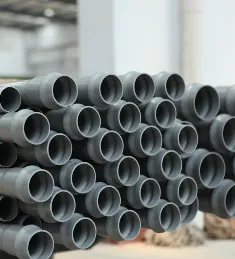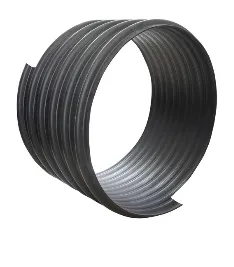Feb . 17, 2025 23:26 Back to list
pvc pipe irrigation system
PVC pipe irrigation systems are revolutionizing the way agricultural and landscaping professionals handle water distribution. These systems, made predominantly out of polyvinyl chloride (PVC), offer an effective, durable, and flexible solution that caters to both large scale agricultural fields and smaller garden landscapes. From drip irrigation to sprinkler systems, PVC pipes have fundamentally transformed how water is delivered where it's needed most.
Implementing PVC irrigation systems is also supported by extensive research and authoritative guidelines. Studies consistently show that PVC pipes have a lower environmental impact during their manufacturing process compared to other materials. For example, PVC's lower energy requirement during production and lesser CO2 emissions highlight its environmental appeal—a topic increasingly relevant in discussions around sustainable agriculture. For those invested in the reliability and trustworthiness of irrigation solutions, PVC pipes have a proven track record. Farmers and landscapers who have adopted these systems report prolonged system lifespans, coupled with minimal maintenance needs. The resilience of these pipes even in extreme weather conditions—whether it is scorching heat or freezing temperatures—attests to their robustness. However, achieving an ideal setup requires a degree of expertise. While PVC pipes are relatively easy to work with, ensuring that the entire system operates efficiently involves understanding the nuances of flow rates, pressure levels, and the integration of components such as valves and timers. Consulting with irrigation specialists can provide valuable insights into the optimal design and layout that align with specific environmental conditions and agricultural goals. In summary, the adoption of PVC pipe irrigation systems marks a significant leap forward in water management for agriculture and landscaping. These systems represent a blend of durability, environmental consciousness, and operational efficiency, offering versatile solutions for modern-day water delivery challenges. As innovations continue to refine PVC materials and irrigation technologies, the value proposition for PVC-based systems is only set to strengthen, establishing them as a cornerstone in irrigation strategies for years to come.


Implementing PVC irrigation systems is also supported by extensive research and authoritative guidelines. Studies consistently show that PVC pipes have a lower environmental impact during their manufacturing process compared to other materials. For example, PVC's lower energy requirement during production and lesser CO2 emissions highlight its environmental appeal—a topic increasingly relevant in discussions around sustainable agriculture. For those invested in the reliability and trustworthiness of irrigation solutions, PVC pipes have a proven track record. Farmers and landscapers who have adopted these systems report prolonged system lifespans, coupled with minimal maintenance needs. The resilience of these pipes even in extreme weather conditions—whether it is scorching heat or freezing temperatures—attests to their robustness. However, achieving an ideal setup requires a degree of expertise. While PVC pipes are relatively easy to work with, ensuring that the entire system operates efficiently involves understanding the nuances of flow rates, pressure levels, and the integration of components such as valves and timers. Consulting with irrigation specialists can provide valuable insights into the optimal design and layout that align with specific environmental conditions and agricultural goals. In summary, the adoption of PVC pipe irrigation systems marks a significant leap forward in water management for agriculture and landscaping. These systems represent a blend of durability, environmental consciousness, and operational efficiency, offering versatile solutions for modern-day water delivery challenges. As innovations continue to refine PVC materials and irrigation technologies, the value proposition for PVC-based systems is only set to strengthen, establishing them as a cornerstone in irrigation strategies for years to come.
Share:
Next:
Latest news
-
High-Quality PPR Pipes and Fittings Durable ERA PPR & PVC PPR Solutions
NewsJul.08,2025
-
Black HDPE Cutting Board - Durable, Non-Porous & Food Safe HDPE Plastic Cutting Board
NewsJul.08,2025
-
High-Quality CPVC Panel Durable HDPE & PVC Panels Supplier
NewsJul.08,2025
-
Double PE Welding Rod Supplier - High Strength, Durable & Versatile Welding Solutions
NewsJul.07,2025
-
High-Quality PVC-O Pipe Supplier Durable 75mm PVC Pipe & Connections Leading PVC Pipe Company
NewsJul.07,2025
-
HDPE Drainage Pipe Supplier – Durable & Corrosion-Resistant Solutions
NewsJul.06,2025

